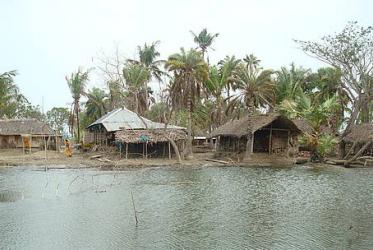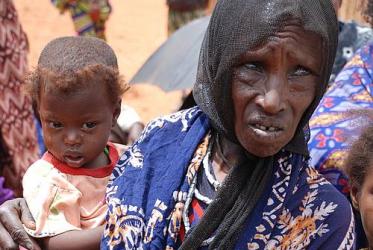Displaying 81 - 100 of 136
01 March 2012
Raising ethical dimensions in debate on climate justice
22 September 2011
Helping water flow freely in Asia
16 December 2010
Praying for change in Myanmar
30 November 2010
Indian theological colleges look forward with new curriculum
24 February 2009
Migrants, too, have human rights
01 December 2008








